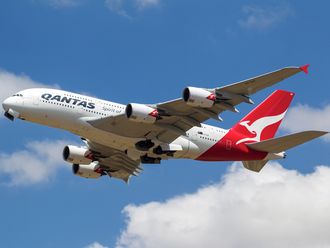Dubai: Middle Eastern low cost carriers (LCCs) will play an increasingly important role in the development of the region’s aviation sector in the coming years, according to a report by Oxford Economics, commissioned by Amadeus.
The report states that the expansion of the LCC market share across the globe will be an important trend from 2013 to 2023.
In the Middle East, LCC traffic has almost doubled in the past five years, however, the report points out that there is plenty of room for growth.
The LCC market share in the Middle East is predominantly controlled by three Gulf carriers; Air Arabia, flydubai and Jazeera Airways.
“Adding more aircraft to our fleet this year will see us opening up many more new routes and to have placed another order for more aircraft before we have received all the deliveries from our original order shows our appetite for further expansion and the continued demand for our flights,” said flydubai chief executive, Gaith Al Gaith, earlier this year.
Air Arabia is the only non-hybrid model, low-cost Middle Eastern airline, in that it does not offer included luggage and meals or offer business class.
An Air Arabia spokesperson said that the airline plans to expand its route network and aims to ultimately operate services to all cities in the Arab world.
European low-cost carriers, easyjet and Wizz Air, also fly into the region.
The report states that globally, LCCs operate a considerable amount of interregional journeys. In the Middle East this accounts for 10 per cent. Air Arabia and flydubai offer services to Europe, Central Asia and India.
The report states that LCCs are yet to demonstrate a feasible model to capture longer-haul market share. But that could change with Saudi Arabian carrier, flynas, which has attempted to shake its low-cost image and will soon launch long-haul flights to the United Kingdom.












